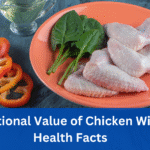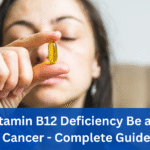In today’s fast-paced world, women juggle numerous roles—professionals, caregivers, parents, students—often at the cost of their own health. Feeling drained or fatigued has become a common experience for many women, regardless of age or lifestyle. While proper sleep, hydration, and nutrition are the pillars of vitality, vitamins play a crucial role in maintaining consistent energy levels. Understanding the key vitamins for energy can help women support their bodies naturally and sustainably.
This article delves into the most important vitamins that contribute to energy production in women, the symptoms of deficiency, and how to incorporate these nutrients through diet and supplements.
Understanding How Vitamins Affect Energy
Energy in the body isn’t just about how we feel—it’s about how our cells function. The mitochondria in our cells convert the food we eat into usable energy, a process that requires various vitamins and minerals as coenzymes and cofactors. Without the proper nutrients, the body struggles to perform this vital conver40sion, leading to fatigue, poor concentration, and a general lack of vitality.
While macronutrients like carbohydrates, proteins, and fats provide the raw fuel, vitamins are essential for metabolizing these macronutrients and helping the body utilize them efficiently.
Top Vitamins for Energy in Women
1. Vitamin B12 (Cobalamin)
Why it matters: Vitamin B12 is important for the production of red blood cells and the adequate functioning of the nervous system. It support convert the food you consume into glucose, which in return gives you energy. A deficiency in B12 can lead to extreme fatigue, memory issues, and even mood swings.
Who’s at risk: Women who follow a vegan or vegetarian diet are particularly at risk since B12 is found primarily in animal products.
Where u get it: Fish, meat, poultry, eggs, milk, and fortified cereals.
Supplement Tip: Sublingual B12 tablets or B12 shots may be beneficial for those with absorption issues.
2. Vitamin B6 (Pyridoxine)
Why it matters: B6 is vital for energy metabolism and neurotransmitter function. It supports adrenal function and helps the body manage stress—two big factors affecting women’s energy levels.
Who’s at risk: Women on hormonal birth control, pregnant women, and those with autoimmune conditions may have lower levels.
Where u get it: Chicken, bananas, potatoes, fortified cereals, and spinach.
Supplement Tip: Look for a B-complex that includes active B6 (P-5-P or pyridoxal-5-phosphate) for better absorption.
3. Vitamin B1 (Thiamine)
Why it matters: Thiamine plays a role in converting carbohydrates into energy and is crucial for nervous system function. It’s especially important for women who consume high amounts of refined carbohydrates or alcohol.
Symptoms of deficiency: Fatigue, irritability, muscle weakness, and poor memory.
Where u get it: Whole grains, pork, legumes, and sunflower seeds.
Supplement Tip: Thiamine is best taken as part of a balanced B-complex to support overall energy metabolism.
4. Vitamin D
Why it matters: Though primarily known for bone health, vitamin D is also involved in hormone regulation and immune function, both of which impact energy levels. Low vitamin D is linked with chronic fatigue and depression, especially in women.
Who’s at risk: Women who spend little time outdoors, live in colder climates, or have darker skin may have lower vitamin D levels.
Where u get it: Sunlight, fatty fish (like salmon), fortified dairy, and egg yolks.
Supplement Tip: Vitamin D3 (cholecalciferol) is the most effective form. Take it with a fat-rich meal for optimal absorption.
5. Iron
Why it matters: Iron is not a vitamin, but it’s too critical to exclude. It’s essential for carrying oxygen in the blood and plays a major role in cellular energy production. Women of reproductive age often lose iron through menstruation, leading to fatigue and weakness.
Symptoms of deficiency: Tiredness, pale skin, shortness of breath, and headaches.
Sources: Red meat, spinach, lentils, tofu, and fortified cereals.
Supplement Tip: Take iron supplements with vitamin C to enhance absorption.
6. Vitamin C
Why it matters: Vitamin C is a powerful antioxidant that helps protect cells from oxidative stress. It also plays a role in iron absorption and adrenal function, which are both vital to energy production.
Who’s at risk: Women under chronic stress or with poor dietary habits may be at risk of deficiency.
Supplement Tip: Time-released vitamin C supplements can offer consistent support throughout the day.
7. Folate (Vitamin B9)
Why it matters: Folate supports red blood cell formation and DNA synthesis, both of which influence energy levels.
Symptoms of deficiency: Fatigue, irritability, poor concentration, and headaches.
Where to get: Leafy greens, legumes, avocados, and fortified grains.
Supplement Tip: Opt for methylfolate instead of folic acid if you have a MTHFR gene mutation, as it is more easily utilized by the body.
Signs You May Be Deficient in Energy-Boosting Vitamins
Knowing the symptoms of vitamin deficiency can help women recognize when they might need additional support. Common signs include:
- Persistent fatigue despite rest
- Brain fog and difficulty focusing
- Irritability or mood swings
- Pale skin or dark circles
- Hair thinning or brittle nails
- Increased susceptibility to illness
If these symptoms persist, it’s a good idea to get blood work done to check for deficiencies in B vitamins, iron, and vitamin D.
Diet vs. Supplements: What’s Best?
Whole foods should be your first choice. They provide a complex matrix of nutrients that work synergistically to promote energy. However, modern diets, food processing, and certain health conditions can lead to gaps in nutrient intake.
Supplements are helpful in the following situations:
- You follow a restricted diet (vegan, vegetarian, gluten-free)
- You have chronic stress or health conditions
- You’re pregnant or breastfeeding
- You’re over 40 and experiencing hormonal shifts
- Blood tests reveal specific deficiencies
When choosing supplements, look for those with third-party testing and minimal additives. Liquid or sublingual forms may offer better absorption.
Lifestyle Tips to Enhance Vitamin Effectiveness
Taking the right vitamins is only one part of the energy puzzle. Here are lifestyle tweaks that help vitamins work better for your energy levels:
- Stay Hydrated – Water is essential for vitamin absorption and metabolic processes.
- Exercise Regularly – Physical activity improves circulation and energy metabolism.
- Reduce Stress – Chronic stress depletes B vitamins and vitamin C, leading to fatigue.
- Prioritize Sleep – Aim for 7–9 hours of quality sleep to help the body regenerate and utilize nutrients.
- Eat Balanced Meals – Pair proteins, fats, and carbs to stabilize blood sugar and boost vitamin uptake.
Special Considerations for Different Life Stages
Teens and Young Women
Nutrient needs increase due to growth and menstruation. Emphasis on iron, folate, and B-complex vitamins is crucial.
Pregnant or Breastfeeding Women
Demand for energy and nutrients is at its highest. Prenatal vitamins with folate, iron, B12, and vitamin D are key.
Perimenopausal and Menopausal Women
Hormonal changes can affect energy and mood. Vitamin D, B12, and magnesium support hormonal balance and vitality.
Conclusion
For women, sustaining energy throughout the day involves more than just caffeine or power naps. It’s about nourishing the body at the cellular level with the right nutrients. Vitamins like B12, B6, iron, and vitamin D play essential roles in energy metabolism and overall wellness.
Through a combination of a balanced diet, mindful supplementation, and a healthy lifestyle, women can combat fatigue and feel more vibrant every day. Consulting with a healthcare provider or nutritionist can help personalize a plan to meet your unique energy needs.
Invest in your energy since it drives all of your responsibilities.
Frequently Asked Questions (FAQs)
1. What vitamins are best for energy in women?
B12, B6, iron, vitamin D, and folate are key for converting food into energy and supporting vitality.
2. Can vitamin deficiencies cause fatigue in women?
Yes, deficiencies in B vitamins, iron, or vitamin D often lead to tiredness, weakness, and low mood.
3. Should I take supplements or rely on diet for energy vitamins?
A balanced diet is ideal, but supplements help if you have dietary restrictions or confirmed deficiencies.
4. Is it safe for women to take energy-boosting vitamins daily?
Yes, most vitamins are safe daily, but dosage should be based on individual needs and doctor’s advice.
5. Do women need different energy vitamins at different ages?
Yes, teens, pregnant women, and menopausal women have varying needs, especially for iron, folate, and vitamin D.





